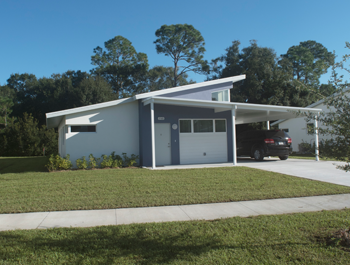Image

Steven Kirk, President, Rural Neighborhoods
Challenge: In Southwest Florida, local groups asked Rural Neighborhoods to help preserve affordable housing developments and prevent the displacement of residents. Our organization needed to become a trusted neighborhood leader and to transform ourselves from a real estate project developer to a place-based, neighborhood stabilization activist.
Looming financial pressures and growing cracks in leadership marked the crises facing the Empowerment Alliance of Southwest Florida, Immokalee Housing and Family Services and Florida Non-Profit Services in late 2014. Much was certainly at stake, including more than 50 years of combined service, local know-how, land under development (and in debt) and rental apartments serving more than 400 low-income persons. Struggling with staff and board departures, these organizations saw that joining an experienced, well-capitalized, regional partner made more sense than trying to claw themselves back to limited impact.
Rural Neighborhoods involvement in Immokalee dates back a decade to the development of two successful rental communities totaling 171 units.
Salvaging troubled nonprofits is harder if a rescuer stumbles into such relationships rather than establishing a rationale with well-considered goals. Our two-year old strategic plan had carved out just such a blueprint, recommending that we seek out nonprofits that owned sound housing assets but have too little capital or trouble maintaining a volunteer board. Our strategic objectives for such an undertaking included: to improve asset and property management efficiencies, increase net cash flow, gain unrestricted capital and acquire new program skills.
It's not easy for small, decades-old housing and community development organizations to step aside, but creative exit strategies that offer new opportunities and honor organizational and personal legacies can bridge these sentiments. In our Immokalee initiative, we celebrated partners' board and staff contributions through news coverage, building signage and recognition events. We provided organizations with legal assistance for their dissolution and contributions toward outstanding financial issues such as audits and severance pay. Recognition and assistance proved far better than having their past housing accomplishments deteriorate.
 Filling the void created by the simultaneous loss of several community-based nonprofits is a substantive challenge. Our historic neighborhood role was limited to real estate development and property management, which positioned us as a peripheral stakeholder rather than a trusted leader. To emerge as a true neighborhood quarterback in the eyes of local residents required us to transform ourselves from a real estate project developer to a place-based, neighborhood stabilization activist. Hiring Dorothy Cook, former executive director of the Empowerment Alliance of Southwest Florida, as our neighborhood revitalization manager as she wound down her former group's corporate dissolution offered local continuity and deepened our neighborhood ties.
Filling the void created by the simultaneous loss of several community-based nonprofits is a substantive challenge. Our historic neighborhood role was limited to real estate development and property management, which positioned us as a peripheral stakeholder rather than a trusted leader. To emerge as a true neighborhood quarterback in the eyes of local residents required us to transform ourselves from a real estate project developer to a place-based, neighborhood stabilization activist. Hiring Dorothy Cook, former executive director of the Empowerment Alliance of Southwest Florida, as our neighborhood revitalization manager as she wound down her former group's corporate dissolution offered local continuity and deepened our neighborhood ties.In this new role, Rural Neighborhoods established the EP2 Neighborhood Revitalization Plan by engaging 150 local households and 15 organizational stakeholders and inventorying housing conditions block by block. The plan includes resident priorities for the real estate assets associated with our merger and acquisition strategy and for broader neighborhood issues such as infrastructure, education, youth and healthy lifestyles. Resident engagement led to our ongoing sponsorship of semi-annual EP2 resident leadership academies, with more than 30 neighborhood graduates to date.
Highlights of Rural Neighborhoods' real estate production attributable to the Immokalee initiative include:
Merging with Florida Non-Profit Services resulted in $5.3 million in new real estate assets including Esperanza Place, a newly built 48-unit multifamily rental community and three scattered-site rental homes.
Takeover of Immokalee Housing and Family Services' title and $2 million in mortgage debt at Timber Ridge at Sanders Pines Reserve preserved affordable housing for its 75 households and will result in an additional $2.8 million in substantial rehabilitation improvements.
Twenty-five acres of commercial, multifamily and single-family zoned land with more than $1.5 million in past public-private investment was preserved at one-tenth the cost and provides land for future development of more than 100 units of multifamily housing and 60 single-family homes.
The benefits of our takeover strategy and EP2 plan include expanding our Immokalee portfolio to 315 units, greatly improving our local property management efficiencies. Gross potential rent will grow by more than $1 million per year. The merged and dissolved entities provided a one-time contribution of $150,000 in unrestricted capital and retained personnel brought us new skills and aided our succession planning.
More than $12 million in neighborhood real estate assets were preserved, a pipeline of local housing developments endorsed by residents is in place and other parcels have been land banked for future investment. Our response to the local organizational crisis fundamentally changed our mission in Immokalee and led us to a place-based approach to our work.

